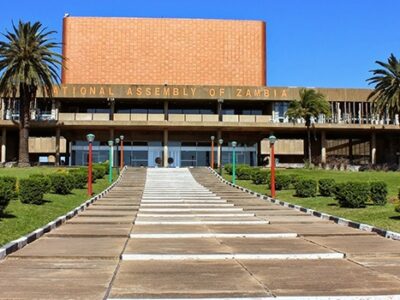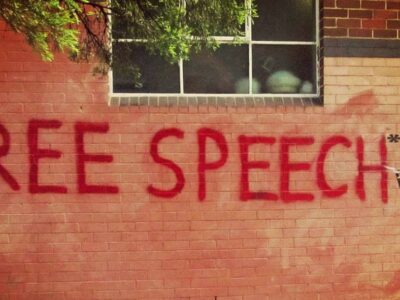In the digital age, social media has become a powerful tool for promoting free speech and democratic engagement globally.
In Zambia, platforms like Facebook, X and WhatsApp have become essential for citizens to express opinions, share information and engage in political discourse.
As of January 2024, Zambia had more than 3.55 million social media users, representing 17 percent of the population, according to Datareportal.
Read More: Zambia’s media freedom: Progress amid new threats
With 16.4 million cellular mobile connections—equivalent to 78.7 percent of the population—Zambians have unprecedented access to online platforms.
This accessibility has turned social media into a virtual public square, where citizens, particularly the youth, can discuss social issues, criticise government policies and organise movements without the immediate fear of censorship.
“Social media is one of the platforms where people have control, unlike traditional media, which is controlled by an institution,” said Jonah Buyoya, winner of the BBC Komla Dumor Award 2022, in an interview with Zambia Monitor.
Espina Mumba, a Gen Z content creator and recent graduate, echoed this sentiment, noting that social media offers a powerful platform to express ideas, share creative content and engage with a diverse audience in Zambia.
“Unlike traditional media, which is often more controlled and limited in scope, social media provides a space where you can freely share opinions, showcase talents and discuss issues relevant to your community without significant gatekeeping,” she said.
The role of social media in Zambia was particularly evident during the 2021 general elections.
Platforms like Facebook and X played a critical role in mobilising voters, sharing real-time election updates, and holding political leaders accountable.
However, this newfound freedom comes with challenges.
Government regulations increasingly threaten open communication, raising concerns about the balance between free speech and national security.
Mumba pointed out that while social media platforms provide a vibrant space for self-expression, content creators in Zambia face significant challenges due to regulations that could impact online speech.
“These challenges include the risk of having content flagged or removed if it is perceived as controversial or in violation of platform guidelines. Additionally, navigating complex legal frameworks may restrict certain types of speech or content, leading to self-censorship among creators,” she explained.
The Cyber Security and Cyber Crimes Act of 2021 is one such regulation that has raised concerns among free speech advocates.
“One of the challenges is the Cyber Security law,” Buyoya noted.
“It administers different sets of laws for the digital space, which can be a challenge because freedom of expression ideally should allow people to express themselves, especially in a democracy.”
This law has made some Zambians hesitant to express themselves online, not necessarily because of the Act itself, but out of fear that they might inadvertently violate the law.
While Zambia has largely avoided the widespread internet shutdowns seen in other countries, the one-time shutdown during the 2021 elections had a significant negative impact.
“We have not experienced much of that in Zambia,” Buyoya remarked. “The one-time shutdown in 2021 was not good; the impact was negative, but we can be proud that this is not common in Zambia.”
Social media in Zambia remains a double-edged sword: it offers a powerful platform for free speech, but its benefits are tempered by the challenges posed by government regulation and the potential for self-censorship.
The ongoing balance between these forces will shape the future of digital communication and democracy in the country.
WARNING! All rights reserved. This material, and other digital content on this website, may not be reproduced, published, broadcast, rewritten or redistributed in whole or in part without prior express permission from ZAMBIA MONITOR!












Comments